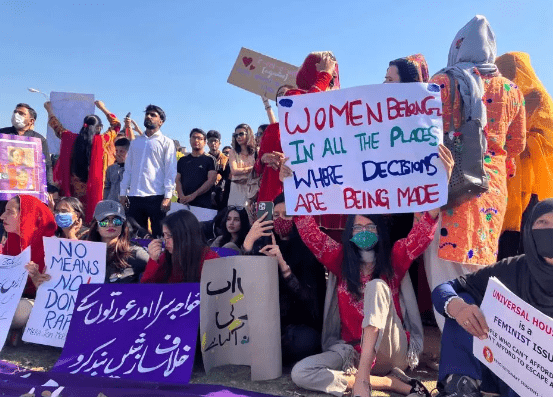
Out of 127 million registered voters in Pakistan, 10 million more men than women have registered to vote in the general election scheduled for February 8, 2024. This is a large gender gap in a country in which women make up 49 percent of the population.
Although voting is a constitutional right for all adults in Pakistan, in past elections millions of women have been effectively barred from voting. Particularly in Pakistan’s most conservative constituencies, political party officials, local elders, and other powerful figures have colluded in broadcasting messages telling women not to vote and sometimes physically preventing them from polling stations. Courts have been slow to uphold legal challenges to these practices.
A more recent source of the gender gap is the requirement that voters have a Computerized National Identification Card (CNIC) to be eligible to vote. Despite some public awareness campaigns and mobile registration centers meant to make it easier for women to obtain these ID cards, many still cannot do so because of restrictions on movement and barriers to education in Pakistan’s patriarchal, conservative society. Not having a CNIC also deprives women of access to other essential services and benefits such as government loans and a monthly social security stipend under the Benazir Income Support Program.
In 2017, Pakistan enacted the Elections Act to address some of the reasons for women’s disenfranchisement. The law stipulates that for an election to be valid, at least 10 percent of the voters in any constituency had to be women. But this low percentage did little to address the disparity.
Pakistan’s constitution permits the government to achieve equality of citizens by adopting special provisions for the protection of women. The United Nations Convention on the Elimination of All Forms of Discrimination against Women (CEDAW) obligates governments to “take all appropriate measures to eliminate discrimination against women in political and public life,” including in elections. The CEDAW Committee, in a General Recommendation, calls for “full and equal participation of women” in democratic political systems.
Governments and parliaments should reflect the makeup of society as a whole; millions of missing women voters means their concerns are poorly represented in Pakistan. As the country approaches another general election, the Pakistan government should take urgent steps to ensure women can participate on an equal basis in the electoral process.






